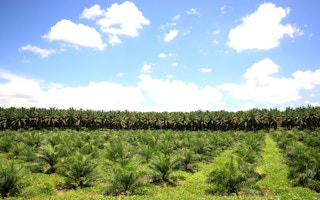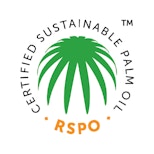Instant noodles may be the snack of choice for millions of Chinese consumers, but the controversy behind one of its main ingredients—palm oil—seems to have gone unnoticed by noodle producers in China.
So far, only one Chinese noodle company, Foshan City King David Foods, has joined the Roundtable for Sustainable Palm Oil (RSPO), the industry’s leading certifier. Compare this with the rest of the world, where “all major instant noodle companies are members of the RSPO”, says Datuk Darrel Webber, the certification body’s chief executive.
Palm oil, which makes up about 20 per cent by weight of an average packet of instant noodles, has been at the forefront of much controversy as consumers around the world have discovered that a substance found in more than half of all supermarket products is responsible for deforestation and human rights abuses in the countries where it is grown. Unsurprisingly, instant noodles makers such as Nissin and Maruchan have been under increasing pressure to clean up their supply chains.
Yet it seems for a nation which consumed over 40 billion servings of instant noodles in 2018, sustainably-sourced palm oil has some way to go. Only 1 per cent of the palm oil imported into the country has been classified ‘sustainable’ by RSPO, whose certified oil is produced in a way that avoids harm to people and forests.
But progress is headed in the right direction.
In July, RSPO celebrated the first year anniversary since it laid foundations in China through a five-year strategic alliance with green group WWF China and the China Chamber of Commerce of Foodstuffs and Native Produce (CFNA). The alliance, known as Certified Sustainable Palm Oil Alliance (CSPOA), aims to serve as a platform to accelerate the pace in which stakeholders, from traders to manufacturers to retailers, are able to collectively make sustainable palm oil the default choice throughout the supply chain.
In this interview with Eco-Business in Wuhan, hosty city for the 2019 RSPO China Forum, Darrel Webber and RSPO’s global outreach and engagement director Dan Strechay, share their thoughts on the progress China has made so far, the challenges that stand in the way, and the need for ‘China speed’.
What has happened a year after the sustainable palm oil alliance was formed in China?
Webber: The alliance has started slowly, but the launch was built on the fact that we moved from four members in mainland China in 2011 to 105 this year. And a lot of the new members are not only multinationals but local, Chinese companies - and that is the most exciting part about our progress.
Strechay: We’ve also increased the number of certified facilities in China to 31, with the aim to hit about 50 by the end of the year. While RSPO membership is a proxy for interest in sustainable palm oil, certified facilities is a proxy for market interest of buyers of sustainable palm oil. So that’s a good signal for us.
Webber: Another encouraging trend is China’s increasing interest in addressing deforestation. Our member COFCO (China National Cereals, Oils and Foodstuffs Corporation), the state-owned Chinese company, has made a big commitment to no deforestation in its supply chain. With the new RSPO standard [introduced in November 2018, which toughened rules that prohibit deforestation], there is an effective mechanism to implement these pledges and make them real.
So companies in China will now be held to higher standards for sustainable palm oil?
Webber: We have one standard which we apply to every market in the world. Many Chinese companies are now more global in their approach, so they understand global issues better. They are also learning from the more sophisticated markets and are already pursuing the issue of cleaning up supply chains.
You can see the market interest moving from Europe, to the US, to this part of the world. Japan, for example, has seen a big rise in terms of interest in RSPO in the last two years, and is now top 10 in terms of RSPO membership.
Strechay: There is a second-mover advantage [for Asian countries]. Europe was the pioneer. They hit many road blocks and by working through a multi-stakeholder platform like RSPO, we’ve been able to identify and remove them.
There is an opportunity for a market like China to grow very quickly. But if you align this opportunity with the ambition of the government to be a leader in sustainability, you have a sweet spot to demonstrate leadership. This can have a huge impact on the world’s palm oil market.
Compared to the backlash in Europe, the voice of the consumer against the negative environmental impacts of palm oil cultivation has been quiet in China. Will this change over time?
Webber: It’s not an issue of if but when. The voice will come. In some markets, it’s like a dripping tap. In others, it is like a tsunami. Our message to companies is this: don’t wait for the tsunami.
If (demand for sustainable palm oil) comes in a huge wave, you will not have time to react and you will find yourself out of position in the market. This has been the case for some companies in Europe.
I’m a big believer that the consumer has a role to play in this, but responsible companies have a far bigger role to tell consumers that this is the right thing to do. A consumer like you or me does not have the time to analyse all the options. Big companies should take on the responsibility to tell their consumers, this is what we think is the right way to solve the deforestation issue.
Unilever, for example, reported a 40 per cent increase in sales of products that do good things for the planet and people. They didn’t wait for consumers to ask. They’ve shown that sustainable brands are a good investment.
Is the price premium for sustainable palm a barrier for the Chinese consumer?
Strechay: As an organisation that operates globally, I can’t tell you one market in the world that isn’t price sensitive. It’s about getting over the hump of making the first purchase, and getting more comfortable with the supply chains. Then it becomes the way you do business in the long term.
As for the end consumer, in reality we have not seen any company transfer the costs of certified sustainable palm oil to the consumer. Let me give you an example of a candy bar. It is unlikely that the candy company would charge a consumer more because the price impact of moving to a certified sustainable palm oil for the chocolate coating on the candy bar would have no impact on the cost of the final product.
Are the targets for China’s adoption of certified sustainable palm oil ambitious enough?
Strechay: I think they are already ambitious. We hope to achieve 10 per cent of all palm oil consumption in mainland China certified as sustainable by 2020. Right now, a conservative estimate is around 1.5 or 2 per cent.
Our growth trajectory has actually been strong; 245 per cent growth in membership from 2015, which has led to the growth in supply chain certified facilities. Our target for 50 certified sites on the mainland by the end of the year is possible.
Webber: Even our most mature European markets started off very flat. Suddenly growth was exponential, and today we have 78 per cent market penetration.
How will CSPOA help to achieve those targets?
Webber: Isn’t there such a thing as “China Speed”, when things can change suddenly and cause demand to scale up very quickly? Next year, China will play host to the UN Biodiversity Conference. This could be a platform for the government to showcase its commitments. Other major developments such as the Belt & Road Initiative are linked to palm oil producing countries such as Malaysia and Indonesia. The 2020 Olympics in Japan, for example, was the trigger which drove up demand for certified sustainable palm oil. Beijing’s Winter Olympics in 2022 could witness the same demand increase. China, compared to many other markets, is very able to do that.
Strechay: Speaking of China speed, our experience in the United States has been very useful in our implementation for China. The US market grew from 170 members to 515 members in under three years. In fact, market players treat such alliances as a pre-competitive platform to educate themselves or to remove road blocks. During this time, they are actually aligning demand and preparing themselves logistically, so that by the time the retailers started asking for sustainable palm oil, they were ready for it.
What about barriers? What challenges does RSPO face in the uptake of certified sustainable palm oil in China?
Webber: The Chinese government has shown commitment to achieving sustainable development goals, so I don’t think there are policy barriers.
A challenge at the moment is that certified sustainable palm oil is not yet a commodity. Because it constitutes 19 per cent of global oil, it is still defined as a niche product. This means that more concerted effort is needed in the buy-sell process.
Palm oil is the first soft commodity in the world to think about sustainability. Yet unlike a physical commodity like timbre, oil cannot be differentiated by its grade or origin, and it’s difficult to tell sustainable from uncertified palm oil. This is why we need to make certified sustainable palm oil the default palm oil of choice.






















